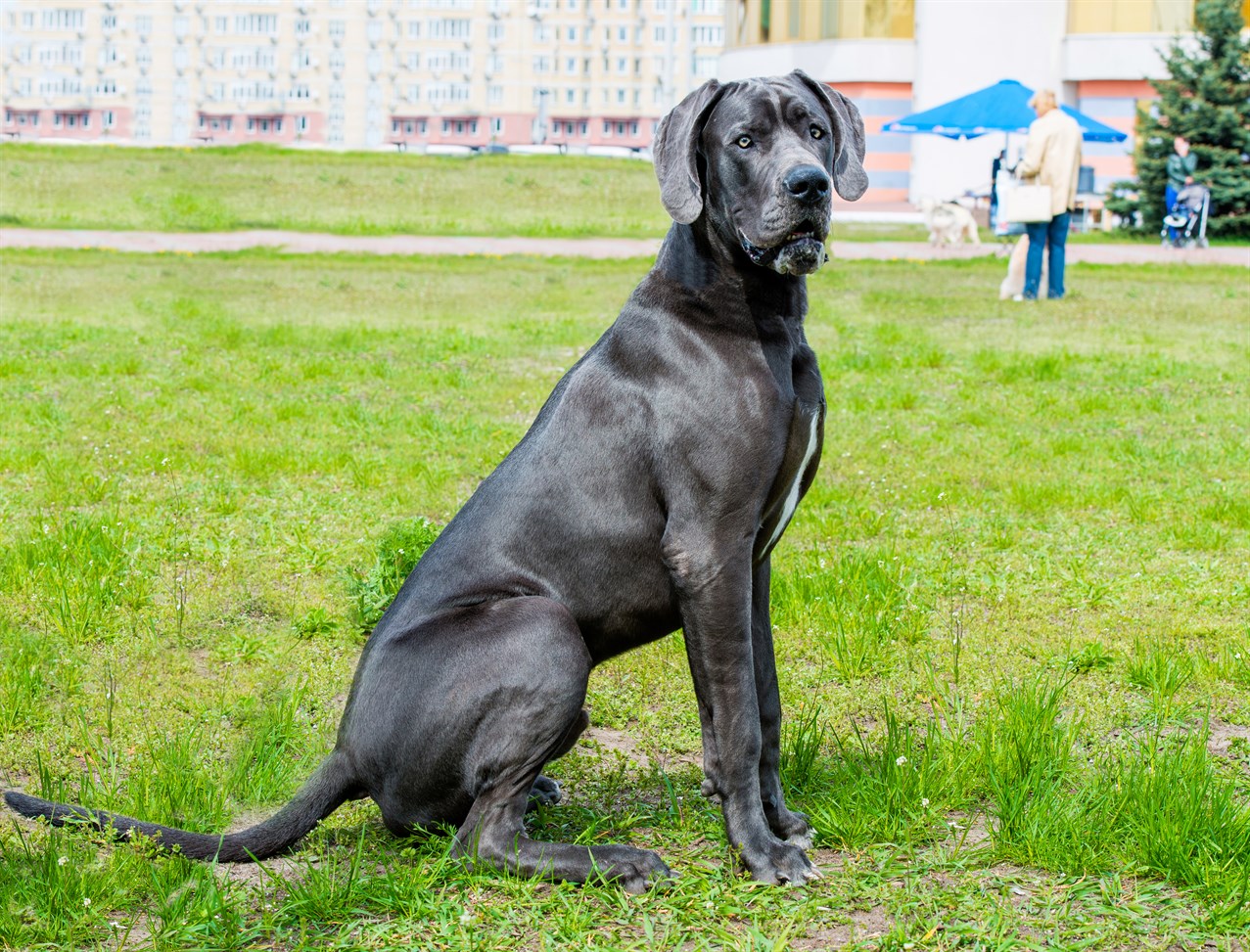Great Dane Feeding Habits and Food Requirements

The Great Dane's immense size and stature require special attention to their feeding habits and nutritional needs. Providing them with a balanced and appropriate diet is crucial for their health, growth, and overall well-being. Here are some important considerations for feeding Great Danes.
High-Quality Dog Food
Choose a high-quality commercial dog food designed for large-breed puppies or adult dogs. Look for brands that list meat as the primary ingredient and avoid foods with excessive fillers or artificial additives.
Great Dane puppies grow rapidly, so it's essential to provide them with a diet specifically formulated for large-breed puppies to support their bone and joint development.
Feeding Frequency
Great Dane puppies should be fed three to four times a day to support their growth and prevent the development of musculoskeletal issues.
Adult Great Danes can transition to two meals a day. Spacing out meals can help reduce the risk of bloat, a condition more common in deep-chested breeds like Great Danes.
Portion Control
Great Danes are prone to obesity, which can lead to various health issues. Carefully control their portion sizes and monitor their weight to ensure they maintain a healthy body condition.
Consult your veterinarian to determine the appropriate portion sizes based on your Great Dane's age, weight, activity level, and individual needs.
Protein and Fat
Protein and fat are essential components of a Great Dane's diet. Look for a dog food that contains a moderate level of protein (around 20-25%) and a moderate level of fat (around 10-15%).
Avoid overfeeding protein, as excessive protein intake can lead to rapid growth and potential joint problems.
Avoid Rapid Growth
Rapid growth in Great Danes can put stress on their developing bones and joints, increasing the risk of musculoskeletal issues. Ensure that their diet supports steady and controlled growth.
Special Supplements
Consult with your veterinarian before adding any supplements to your Great Dane's diet. In some cases, supplements like glucosamine and chondroitin may be beneficial for joint health, especially in older individuals.
Fresh Water
Ensure that your Great Dane has access to clean and fresh water at all times. Proper hydration is essential for their overall health and digestion.
Age-Appropriate Diet
As your Great Dane ages, their nutritional requirements may change. Be prepared to adjust their diet to meet their evolving needs, whether transitioning from puppy to adult food or addressing senior dog dietary considerations.
Avoid Human Foods
Great Danes are susceptible to bloat and digestive issues. Avoid feeding them human foods, especially those that are toxic to dogs, such as chocolate, grapes, onions, and garlic.
Consult with a Veterinarian
Regularly consult with your veterinarian to assess your Great Dane's overall health and to receive guidance on their dietary needs. Your vet can recommend specific diets and monitor their growth and well-being.
Feeding your Great Dane a balanced and appropriate diet is crucial for their health and longevity. Providing proper nutrition, monitoring portion sizes, and being attentive to their individual needs will help ensure that your Great Dane thrives and lives a happy, healthy life.
Great Dane puppies for sale
- Find Great Dane puppies for sale in ACT
- Find Great Dane puppies for sale in NSW
- Find Great Dane puppies for sale in NT
- Find Great Dane puppies for sale in QLD
- Find Great Dane puppies for sale in SA
- Find Great Dane puppies for sale in TAS
- Find Great Dane puppies for sale in VIC
- Find Great Dane puppies for sale in WA